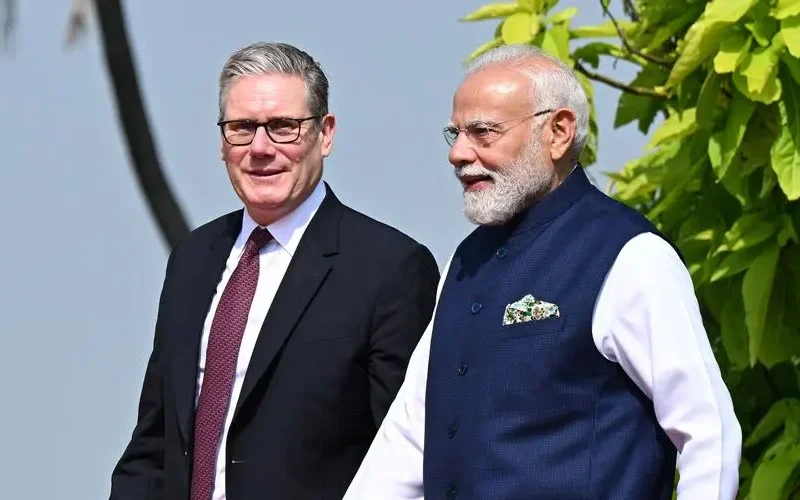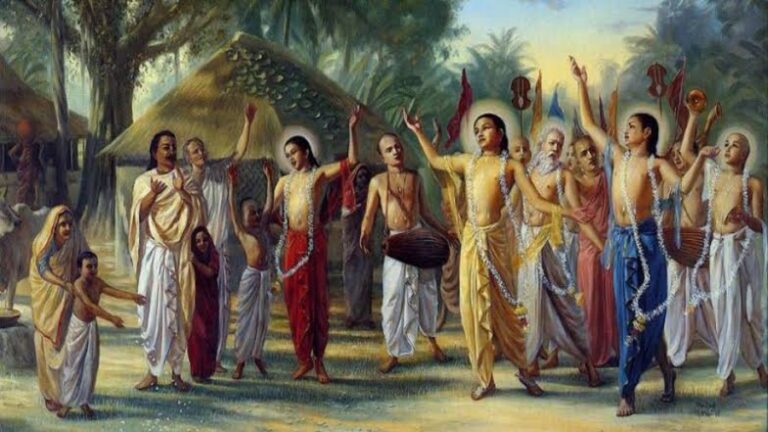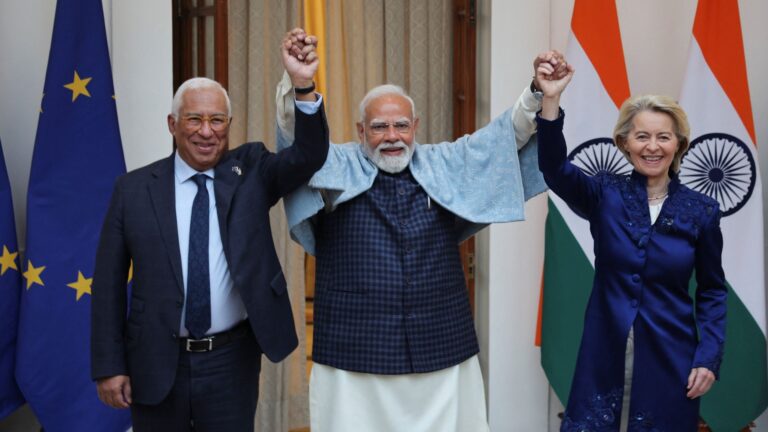
The United Kingdom has sent its largest-ever official delegation to India. British Prime Minister Keir Starmer led a 125-member team to Mumbai on October 8-9, 2025. This was Starmer’s first official visit to India, taking place after the signing of the landmark India–UK Comprehensive Economic and Trade Agreement (CETA) in July 2025. The CETA aimed to reduce tariffs and enhance bilateral economic ties. The delegation focused on “turbocharging” trade, technology, and strategic partnership between the two top global economies.
Prime Minister Narendra Modi welcomed Starmer at Raj Bhavan in Mumbai with warmth and enthusiasm. The two leaders took a walk in the gardens and shared smiles, setting a positive tone for the talks ahead. On the eve of Diwali, Starmer lit diyas in Mumbai, symbolizing the deep-rooted cultural bonds between India and the UK.

Reviewing Vision 2035
A primary focus of this visit was to review and advance the “Vision 2035” roadmap.
This ambitious plan was outlined to strengthen the India-UK Strategic Partnership. It includes goals in trade, innovation, education, defence, and climate. Both leaders delivered keynote addresses at the Global Fintech Fest (GFF) 2025, themed “Powered by AI: Augmented Intelligence, Innovation, and Inclusion.” The event highlighted cooperation in digital technologies and new-age industries.
At its core, Vision 2035 aims to unlock new opportunities for growth and job creation by building on the India-UK Free Trade Agreement and expanding collaborative platforms for innovation, financial connectivity, and advanced research. It prioritizes the development of cutting-edge technologies such as AI, biotech, quantum computing, and critical minerals, and commits to joint climate action by mobilizing green finance, advancing renewable energy, and ensuring resilience.
Defence cooperation includes co-developing advanced technologies and strengthening Indo-Pacific maritime security. The vision also strengthens cultural and educational ties, promoting university collaborations and mutual recognition of qualifications. Oversight and implementation will be guided by regular high-level political engagement and annual reviews. The document reaffirms both nations’ dedication to a rules-based international order and advocacy for reform in multilateral institutions, ensuring the partnership remains dynamic and aligned with shared interests in a rapidly evolving global landscape.
Strengthening Trade and Economic Ties
The recent Free Trade Agreement (FTA) aims to slash tariffs on textiles, whisky, and cars while expanding market access for both nations. Commerce Minister Piyush Goyal and UK Trade Minister Peter Kyle met in Mumbai to cement these new trade frameworks. Together, India and the UK represent the world’s fifth and sixth-largest economies. The agreement is expected to increase bilateral trade by £25.5 billion by 2040.
Starmer emphasized that the FTA is purely about commerce, clarifying that no visa deals were on the agenda.
The visit served as a catalyst to accelerate political and business engagement around the agreement. Starmer brought over 125 business, academic, and cultural leaders to seize new opportunities under the FTA. This trade mission marked the largest post-Brexit UK trade delegation to India, signaling the strategic importance Britain places on economic ties with India.
Business and Cultural Interactions
The UK delegation included top business leaders, CEOs, and cultural figures. Rolls-Royce announced India would become a “home market,” aiming to double sourcing by 2030 and open its largest global innovation centre. British Airways announced further network growth in India. Starmer also visited a youth football training center and viewed the Premier League trophy.
Former England footballer Michael Owen praised the expanding India-UK sporting connections, calling them a “celebration of friendship and sportsmanship.” The visit reinforced the confidence of British businesses to invest and expand their operations in India.
Bollywood Meets Britain
A cultural highlight was Starmer’s visit to Yash Raj Films Studio in Mumbai, with the aim to boost the creative industries of both countries. Accompanied by actress Rani Mukerji and YRF CEO Akshaye Widhani, he watched a film and announced that three YRF movies will be filmed in the UK starting in 2026.

The collaboration is expected to create thousands of jobs and generate millions for the UK by attracting Indian film projects. It represents Bollywood’s growing role in strengthening India-UK ties beyond traditional sectors such as trade and technology. Thus, Bollywood acts as a bridge enhancing bilateral cultural diplomacy while contributing substantially to the economic gains expected from the India-UK trade deal.
Local students gathered to greet him during his tour of Yash Raj Studios, further boosting people-to-people ties between the two nations.
Positive Outlook for Bilateral Relations
Both India and the UK stand to benefit immensely from this renewed partnership. Sectors such as technology, manufacturing, financial services, and entertainment will see new opportunities and growth. The successful visit signals stronger strategic alignment and mutual respect.
Prime Minister Keir Starmer’s visit underscores a turning point in India–UK relations. The comprehensive India-UK Vision 2035 and the ambitious FTA set the stage for unprecedented cooperation. As the two democracies work together, their partnership promises growth, innovation, and prosperity for both nations.
The 2025 UK delegation visit has brought renewed momentum and clarity on the practical steps to implement the India-UK FTA. It has strengthened institutions and catalyzed business confidence. The visit also underscored the trade agreement as a key driver for bilateral growth and long-term economic integration.
For more such articles, check out the World Times.



